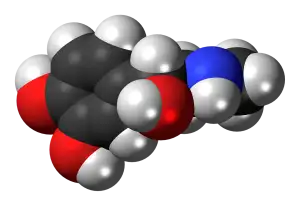Muscle Building 101: Unlocking the Power of Protein for Maximum Gains

- Importance of Protein for Muscle Building
- Recommended Daily Protein Intake for Muscle Growth
- Factors Influencing Protein Requirements
- Protein Sources for Muscle Building
- Timing and Distribution of Protein Intake
- Potential Risks of Excessive Protein Consumption
- Consultation with a Health Professional for Personalized Protein Recommendations
Importance of Protein for Muscle Building
Protein plays a crucial role in muscle building. It is the building block of muscles, providing the necessary amino acids for growth and repair. When we engage in strength training or exercise, our muscles undergo microscopic damage. Protein helps to repair and rebuild these damaged muscle fibers, leading to increased muscle mass and strength over time. Without an adequate intake of protein, it becomes challenging for the body to build and maintain lean muscle mass. Therefore, ensuring an optimal protein intake is essential for anyone looking to maximize their muscle-building potential.
Recommended Daily Protein Intake for Muscle Growth
When it comes to building muscle, protein is the key nutrient that plays a crucial role. The recommended daily protein intake for muscle growth varies depending on several factors such as age, sex, weight, and activity level.
For most individuals looking to build muscle, it is generally recommended to consume around 0.8-1 gram of protein per pound of body weight. This means that if you weigh 150 pounds, your daily protein intake should be between 120-150 grams.
However, athletes and those engaging in intense resistance training may require higher amounts of protein to support muscle repair and growth. In these cases, it is suggested to consume 1-1.2 grams of protein per pound of body weight.
It's important to note that these recommendations are general guidelines and individual needs may vary. Consulting with a nutritionist or healthcare professional can help determine the optimal protein intake for your specific goals and needs.
Meeting your daily protein requirements can be achieved through a combination of whole food sources such as lean meats, poultry, fish, eggs, dairy products, legumes, nuts, and seeds. Additionally, there are various high-quality protein supplements available in the market that can help meet your protein needs conveniently.
Remember that while meeting your daily protein intake is important for muscle growth, it should be balanced with other essential nutrients such as carbohydrates and fats to ensure overall health and wellbeing. Striking the right balance is key to achieving optimal results in your muscle-building journey.
Factors Influencing Protein Requirements
Several factors influence an individual's protein requirements for muscle building. Firstly, the level of physical activity plays a significant role. Those who engage in intense workouts or endurance exercises require more protein to support muscle repair and growth.
Secondly, body weight is another important factor. Generally, individuals with higher body weight need more protein to maintain and build muscle mass compared to those with lower body weight.
Additionally, age can affect protein requirements. Older adults may require higher protein intake to counteract muscle loss associated with aging.
Furthermore, gender also plays a role in determining protein needs. Men typically have higher muscle mass than women and therefore may require more protein for muscle building purposes.
Lastly, the overall health status of an individual should be considered. Certain medical conditions or injuries may increase the demand for protein to aid in recovery and healing processes.
Considering these factors is crucial when determining the optimal amount of protein needed for effective muscle building. It is recommended to consult with a health professional who can provide personalized advice based on individual circumstances.
Protein Sources for Muscle Building
Protein is an essential nutrient for muscle building, and incorporating the right protein sources into your diet can greatly enhance your gains. Lean meats such as chicken, turkey, and beef are excellent sources of high-quality protein. Fish like salmon and tuna are also rich in protein and contain omega-3 fatty acids that aid in muscle recovery. For vegetarians, plant-based options like tofu, tempeh, lentils, quinoa, and beans are great choices. Dairy products such as milk, yogurt, and cottage cheese provide a good amount of protein along with calcium for strong bones. Additionally, eggs are a complete protein source that can be easily incorporated into any meal. Experiment with these diverse protein sources to fuel your muscles effectively.
Timing and Distribution of Protein Intake
When it comes to muscle building, timing and distribution of protein intake are crucial factors. To maximize muscle growth, it is recommended to consume protein throughout the day rather than in one large meal.
Research suggests that spreading protein intake evenly across meals can enhance muscle protein synthesis. Aim for a minimum of 20-30 grams of high-quality protein per meal. This can be achieved by incorporating lean meats, poultry, fish, eggs, dairy products, legumes, and plant-based proteins into your diet.
Additionally, consuming protein before and after workouts is essential. Consuming a pre-workout meal or snack containing protein helps provide amino acids for energy during exercise. Post-workout, consuming protein within 30 minutes to an hour helps replenish glycogen stores and aids in muscle repair.
It's important to note that the type of exercise and individual goals may influence protein timing. Endurance athletes may benefit from consuming protein during prolonged exercise sessions to prevent muscle breakdown.
In conclusion, timing and distribution of protein intake play a significant role in maximizing muscle gains. By spreading out your protein consumption throughout the day and incorporating it before and after workouts, you can optimize muscle growth and recovery.
Potential Risks of Excessive Protein Consumption
Excessive protein consumption can pose potential risks to your health. One of the main concerns is the strain it puts on your kidneys. When you consume too much protein, your kidneys have to work harder to eliminate the excess nitrogen waste products. This can lead to kidney damage or even kidney stones over time.
Moreover, excessive protein intake may also increase the risk of dehydration. Protein metabolism requires more water than other macronutrients, and if you're not adequately hydrated, it can put stress on your body's fluid balance.
Another risk associated with consuming too much protein is an increased intake of saturated fats. Many high-protein foods, such as red meat and full-fat dairy products, are also high in saturated fats. A diet rich in saturated fats can raise cholesterol levels and increase the risk of heart disease.
Lastly, excessive protein consumption may lead to nutrient deficiencies. When you focus solely on protein-rich foods, you may neglect other essential nutrients found in a balanced diet. It's important to ensure that you're getting a variety of foods from different food groups to meet all your nutritional needs.
To avoid these potential risks, it's crucial to consume protein in moderation and maintain a balanced diet that includes a variety of nutrient-rich foods. Consulting with a health professional or registered dietitian can help determine your specific protein requirements based on your individual needs and goals.
Consultation with a Health Professional for Personalized Protein Recommendations
Consultation with a health professional is essential for personalized protein recommendations. They can assess your individual needs based on factors such as age, gender, weight, activity level, and overall health. A health professional will consider any specific dietary restrictions or allergies you may have and help determine the optimal protein intake for muscle building. They can also provide guidance on the best sources of protein and advise on the timing and distribution of protein intake throughout the day. Remember, seeking professional advice ensures that you are making informed decisions about your protein consumption for maximum gains.
Published: 07. 01. 2024
Category: Health



